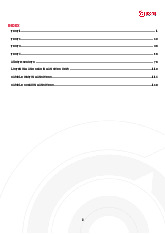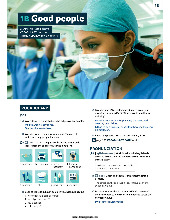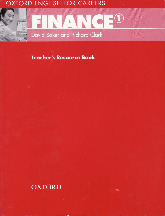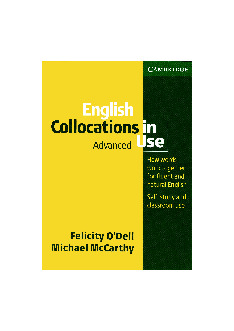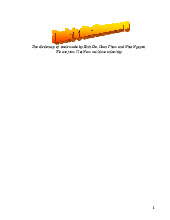








Preview text:
lOMoAR cPSD| 61200861 ÔN TẬP
1. Thì hiện tại đơn (Present Simple) - Cách sử dụng - Công thức a) Tobe +) S + am/is/are +…….
-) S + am/is/are + not ….. ?) Am/Is/ Are + S + …?
Nếu chủ ngữ là I dùng am
Nếu chủ ngữ là She/He/It hoặc danh từ số ít thì dùng is
Nếu chủ ngữ là You/ We/ They hoặc danh từ số nhiều thì dùng are b) V +) S + V/Vs/es + O -) S + do/does + not + V ?) (Wh_) Do/Does + S + V..?
Nếu chủ ngữ là I/You/We/ They hoặc danh từ số nhiều thì câu khẳng định động từ sẽ để
nguyên, câu phủ định và câu hỏi dùng do
Nếu chủ ngữ là She/he/it hoặc danh từ số ít thì câu khẳng định động từ sẽ thêm s/es, câu
phủ định và câu hỏi dùng does - Cách thêm s/es
+ Thêm “es” vào các từ có tận cùng là s,ss,sh,ch,z,x
+ Nếu từ kết thúc là y
+) Trước y là 1 nguyên âm (uể oải) thì sẽ giữ nguyên “y” và thêm “s” Ex: play-> plays (v) Toy-> toys
+) Trước y là 1 phụ âm thì sẽ đổi “y” thành “i” và thêm “es” Ex: study-> studies
+ Thêm “s” vào sau hầu hết các từ, thường kết thúc bằng p, t,f,k, gh,e…… + Động từ bất quy tắc: have-> has - DHNB
Note: t he number of + Ns ….is/are A number of ……are
2. Thì quá khứ đơn lOMoAR cPSD| 61200861 Now: năm n
QKĐ-> từ n-1 đổ về trước - Công thức a) Tobe +) S + was/were.. -) S + was/were not… ?) Was/ Were + S…. b) V +) S + Ved/ P1 +.. -) S + did not + V.. ?) Did + S + V…?
- Cách thêm ed (dành cho các động từ có quy tắc)
+ Thêm “d” vào các từ có tận cùng là “e”
+ Nếu tận cùng của từ là y
+) trước nó là nguyên âm thì sẽ giữ nguyên y và thêm ed
+) trước nó là phụ âm thì sẽ đổi “y” thành “i” rồi thêm ed
+ Động từ 1 âm ttiết có tận cùng là 1 nguyên âm + 1 phụ âm thì gấp đôi phụ âm rồi thêm ed Ex: stop-> stopped
+ Còn lại thì sẽ thêm ed
Exercise 1: Put the verb in brackets into the present simple or past simple
1. We _________ (go) to the beach last weekend.
2. My cousins __do not visit_______ (not/ visit) us every weekend.
3. ___________ (your mum/ make) a chocolate yesterday?
4. I _______ (send) Jessica an email yesterday afternoon
5. The children always ___do___ (do) their homework yesterday afternoon.
6. Last year, I ___________ (travel) to Japan.
7. You (have)____ salad for dinner last night
8. He ___________ (arrive) from the airport at 8:00, ___________ (check) intothe hotel
at 9:00, and met the others at 10:00.
9. I ___________ (receive) three messages two minutes ago.
10. She ___________ (work) at the movie theater after school.
11. Yesterday she ___________ (go) to the cinema and ___________ (watch) a horror movie. lOMoAR cPSD| 61200861
12. Carlos always ___________ (eat) spaghetti but two days ago he ___________ (eat) soup.
13. We seldom ___drink________ (drink) alcohol during the forenoon.
14. Somebody ____took_______ (take) the flowers from the graves in thist morning
15. When ___________ your grandpa ___________ (come) home after war?
16. Some girls ___________ (not/ read) the book yesterday
17. When ___________ (be) they in London the last time? - I think in 2002
18. Why ___________ you ___________ (help) your brother with the homework? -
Because he ___________ (be) rather lazy all the time
19. My dog sometimes ___________ (catch) a mouse and ___________ (bring) it to the front door.
20. I sometimes ____________ friends in the afternoon. (meet)
21. ____________ in the shower? (he/often/ sing)
Exercise 2: Change verb into the past simple
1.I (read) _____ three books last week
2. They (speak) _______ French to the waitress.
3. He (understand) _______ during the class, but now he doesn't understand.
4. He (forget) ______ to buy some milk.
5. I (give) ______ my mother a CD for Christmas.
6. He (tell) _____ me that he lived in Toronto.
7. The film (begin) ______ late.
8. We (fly) ______ to Da Nang.
9. They (drive) _____ to Beijing.
10. He (teach) ______ English at the University.
3. Câu bị động (Passive voice) Active : S + V + O…
S(O) + be + Ved/P2 + by O(S) (nếu có)…
V, be: chia theo thì và theo chủ ngữ
Present: S + am/is/are + Ved/P2 +by O(nếu có)…
Past: S + was/ were+ Ved/P2 +by O(nếu có)…
Past partciple (P2)-> dùng trong câu bị động và các thì có chữ “hoàn thành”, Having Ved/P2 lOMoAR cPSD| 61200861
Exercise 3: Change verbs into past participle
1. We've already (have) ____lunch.
2. This was the first time she had (do) _____ her homework.
3. He has never (drive) _______ a motorbike before.
4. By the time we arrived, the children had (eat) ______ all the chocolate.
5. Are you okay? I've (feel) ______ better.
6. I'd (lend) _____ my umbrella to John, so I got wet.
7. It had (become) ______ very cold, so we went inside.
8. Have you (choose) ______ your university yet?
9. Why has John (leave) _____ already?
10. She has (know) _known_____ about this problem for three months.
Exercise 4: Give the correct form of verb
1. Yesterday, I (go) ………. to the restaurant with a client.
2. We (drive) ……….around the parking lot for 20 minutes to find a parking space.
3. When he (arrive) ……….at the restaurant, the place (be) ……….full.
4. The waitress (ask) …asked…….us if we (have) …had…….reservations.
“ Do you have reservations?” The waitress asked
5. I (say) ……….that he would come.
6. The waiter (tell) ……….us to come back in to hours.
7. My client and I slowly (walk) ……….back to the car.
8. We (stop) ………. at the grocery store and (buy) ……….some cakes.
9. My sister (get) ……….married last month.
10. My computer (be) ……….broken yesterday.
Passive voice: Nếu là câu phủ định thì thêm “not” vào sau tobe
Bài 5: Rewrite these sentences 1.
The waiter brought me this dish.
……This dish was brought to me by the waiter 2.
Our friends send these postcards to us.
…These postcards are sent to us by our friends…………………………… 3.
Their grandmother told them this story when they visited her last week. lOMoAR cPSD| 61200861
…They were told this story by their grandmother when….…… 4.
Tim ordered this train ticket for his mother.
……………this train ticket was ordered for Tim’s mother by him 5.
She showed her ticket to the airline agent.
…………………show-> shown…………………………………………………………………………… 6.
Jim baked this cake yesterday.
……………………………………………………………………………………………… 7.
The shop assistant handed these boxes to the customer.
……………………………………………………………………………………………… 8.
The board awarded the first prize to the reporter.
……………………………………………………………………………………………… 9.
The committee appointed Alice secretary for the meeting.
( …..đã bổ nhiệm Alice làm thư kí cho buổi họp)
…Alice was appointed secretary for the meeting by the committee 10.
They keep this room tidy all the time. ……………keep-kept-kept
EX6: Điền vào chỗ trống dạng đúng của một trong những từ đã cho.
regard surround reconstruct consist locate prepare
1. Tran Quoc pagoda ……………on Thanh Nien Road, which is like a bridge between West Lake and Truc Bach Lake.
be located/situated ..: ở vị trí nào
2. Nowadays, that university …consists………….of: bao gồm 31 faculties with 27,000 students.
3. Nick ……………. a lot of food for the picnic yesterday.
4. The museum ……………. by a group of Japanese engineers last year. Build= construct= erect
5. My school …is surrounded…………. by brick walls now.
6. Nowadays, Oxford University …is regarded as one of the oldest universities in the English speaking countries. 4. Relative clause lOMoAR cPSD| 61200861
Trong 1 câu, S và O sẽ là các đại từ hoặc danh từ, do đó mệnh đề QH sẽ
đứng sau chủ ngữ hoặc tân ngữ
TRONG CÔNG THỨC V BAO GỒM ĐỘNG TỪ TOBE VÀ V
- Mệnh đề QH đứng sau chủ ngữ
S + Đại từ QH + S + V+ O V +O
S + Đại từ QH/tính từ QH + V + O V+ O
Ex: The man who sits next to you is handsome
The boy whom I’m talking to has a good sense of humour
- Mệnh đề quan hệ đứng sau tân ngữ
S + V + O + Đại từ quan hệ + S + V+ O
S + V + O + Đại từ quan hệ+ V+ (O)
Ex: I really like the sweater which my friend gave me
I really like the air which is clean and fresh Relative Pronoun
Refer to (chú ý danh từ đứng phía trước) who Người (chủ ngữ) Whom Người (tân ngữ) whose
Sự sở hữu của người hoặc vật which Vật (chủ ngữ) that Người, vật or cả 2 Where Nơi chốn, địa điểm When Thời gian, thời điểm why Lý do CÁC ĐẠI TỪ QUAN HỆ
- Who : làm chủ ngữ hoặc tân ngữ, thay thế cho danh từ chỉ người …..N(person)+ who + V+O
Ex: The person I love the most in my family is my sister who is so lovely
- Whom: làm tân ngữ, thay thế cho danh từ chỉ người …. N (person)+ whom +S+V+O
Ex: Do you know the girl whom I was talking to?
- Which: làm chủ ngữ hoặc tân ngữ, thay thế cho danh từ chỉ vật ….N(thing) + which+S+V+O …N(thing) + which+V+O lOMoAR cPSD| 61200861
Ex: My watch which my father bought me is very expensive (đắt)
My father bought me a watch which is very expensive
- That:làm chủ ngữ hoặc tân ngữ, thay thế cho cả người và vật hoặc 1 trong 2.
Ex: She keeps talking about the film that we saw last night
She keeps talking about the man and his background that is very impressive
Keep V-ing: tiếp tục làm gì (1 cách liên tục) + Các TH dùng that:
+> Khi đi sau các hình thức so sánh
Ex: This is one of the most interesting movies that I have watched
+> khi đi sau các từ : only, the first, the last…
+> khi danh từ đứng trước bao gồm cả người và vật
+> khi đứng sau các đại từ bất định, đại từ phủ định, đại từ chỉ số lượng: no
one, nobody, nothing, anyone, anything, some, little, none…. + Các TH ko dùng that:
+> trong mệnh đề không xác định ( có dấu phẩy thì không dùng that)
+> sau giới từ không dùng that
Ex: I meet him at 9am at which he is available
- Whose: chỉ sự sở hữu của cả người và vật N(person. Thing)+ whose+N+ V
Ex: Mr. Vinh, whose son received a scholarship is a teacher
Mr V is a teacher. His son received a schorlarship CÁC TRẠNG TỪ QUAN HỆ
- WHEN: thay cho các danh từ chỉ thời gian
N (time)+ when+ S+ VWhen = on/in/at + which
Ex: Please tell me the time when/ at which he comes back
- Where: thay cho danh từ chỉ nơi chốn
N (nơi chốn) + where + S +V Where = at/in/from/on which
Ex: I will come back to the place where/ in which my dad was born and bred
+ Note : Nếu như cái danh từ chỉ nơi chốn là tên riêng thì dùng “which”
Ex: Thai Nguyen, which is famous for tea, is my hometown lOMoAR cPSD| 61200861
- Why: dùng để chỉ lí do, thay cho “ the reason/ for that reason” Ex: The
storm is the reason why/ for which the flight is delayed Why= for which
Bài 1: Điền một trong các đại từ quan hệ sau: who, whom, which, that, whose, why,
when, where vào chỗ trống thích hợp trong mỗi câu sau.
1. The man ______ lives next door is a doctor.
2. The girl ______ you met yesterday is my cousin.
3. I have a friend _whose_____ father is a famous writer. N+ whose + N
4. The book ______ I borrowed from the library is very interesting.
5. That’s the restaurant ______ we had dinner last night.
6. July is the month ______ students often have summer vacation.
7. The reason ______ he was absent is still unknown.
8. The woman to ______ you were speaking is my aunt.
9. They finally found the dog ______ had been missing for days.
10.He gave me a pen, ______ I lost the next day.
In/on/at + which = where/ when For which/ that= why RÚT GỌN
- Nếu mệnh đề QH là mệnh đề chủ động thì rút gọn thành V-ing
Ex: The woman who sells jewlery is my aunt
The woman selling jewlery is my aunt
- Nếu mệnh đề QH ở dạng bị động thì rút thành Ved/P2
Ex: the boy who was injured( bị thương) in the accident is my neighbor
The boy injured in the accident is my neighbor
Nếu có các từ the first/ second/third../ last/ only/ so sánh nhất thì sẽ được rút gọn - Chủ động -> to V
- Bị động -> to be Ved/P2
Bài tập mệnh đề quan hệ trắc nghiệm chọn đáp án đúng
Advertisements, ________ (1) appear on television, social media, and billboards,
and play a crucial role in modern marketing. Companies, ________ (2) products
often compete in a crowded market, using advertising to attract customers. Some
ads, ________ (3) are creatively designed, and can leave a lasting impression on lOMoAR cPSD| 61200861
viewers. However, there are also misleading advertisements, ________ (4) make
false claims about a product’s effectiveness. That is why regulations exist to
ensure ________ (5) all advertisements, whose content must be truthful, follow ethical guidelines.
a. that / b. when / c. none of which / d. which
a. which / b. who / c. whose / d. their
a. that / b. when / c. none of which / d. which
a. it / b. why / c. which / d. whom
a. why / b. that / c. neither / d. none
